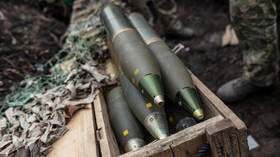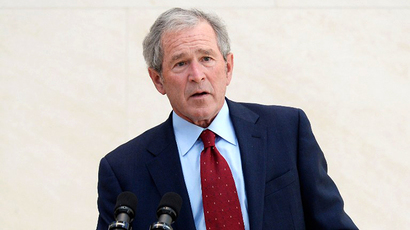Snowden leaks ‘have a grave impact on US national defense’ – Pentagon report

Classified intelligence documents provided to the media by former United States government contractor Edward Snowden “will have a grave impact on US national defense,” according to a previously unpublished Pentagon assessment.
The highly-redacted December 2013 report on how Mr. Snowden’s compromise of secret documents affects the Department of Defense was obtained by The Guardian newspaper this week after filing Freedom of Information Act request with the US government, and published on Thursday alongside an analysis by investigative journalist Jason Leopold.
According to the DOD report, “the scope of the compromised knowledge related to US intelligence capabilities is staggering.”
Two days after Snowden revealed himself on June 9, 2013 to be the source of those documents, the US Defense Intelligence Agency’s Information Review Task Force-2 (IRTF-2) was assembled to assess the true scope of the compromise. Nearly a year later, however, those documents are still being used regularly as source material in an ongoing stream of national security stories.
The December report from the Pentagon is absent specific details about how Snowden’s compromise affected the NSA or other agencies of the US intelligence community, but nevertheless concludes that a staggering amount of information was taken by Snowden which are thought to impact national defense.
“It should be noted that SIGINT-specific equities,” or matters involving the collection of signals intelligence, “are not addressed in this report; NSA is reviewing those separately,” it reads.
Reports published throughout the last year have suggested that Snowden, while employed as an NSA contractor, took anywhere from several thousand to 1.7 million classified files — a fraction of which have been used as primary source documents for Pulitzer Prize-winning articles concerning America’s vast surveillance apparatus and how the SIGINT collection has allowed the US intelligence community to collect tremendous amounts of digital data indiscriminately and in bulk.
Elsewhere in the December report, the DIA defined documents that have been “disclosed” by Mr. Snowden as having been “made available to the public via the media, or to a foreign adversary,” rekindling the notion brought up during last year’s military trial of Army leaker Chelsea Manning in which the government put national security reporting on par with aiding the enemy.
Much of the latest assessment obtained by Leopold for the Guardian is heavily redacted — almost all, in fact — but the journalist acknowledged that its contents have been cited by high-ranking lawmakers within the US intelligence community more than once since its release late last year.
"This report confirms my greatest fears — Snowden’s real acts of betrayal place America’s military men and women at greater risk,” Rep. Mike Rogers (R-Michigan) said in a statement in January. “Snowden’s actions are likely to have lethal consequences for our troops in the field," he said.














